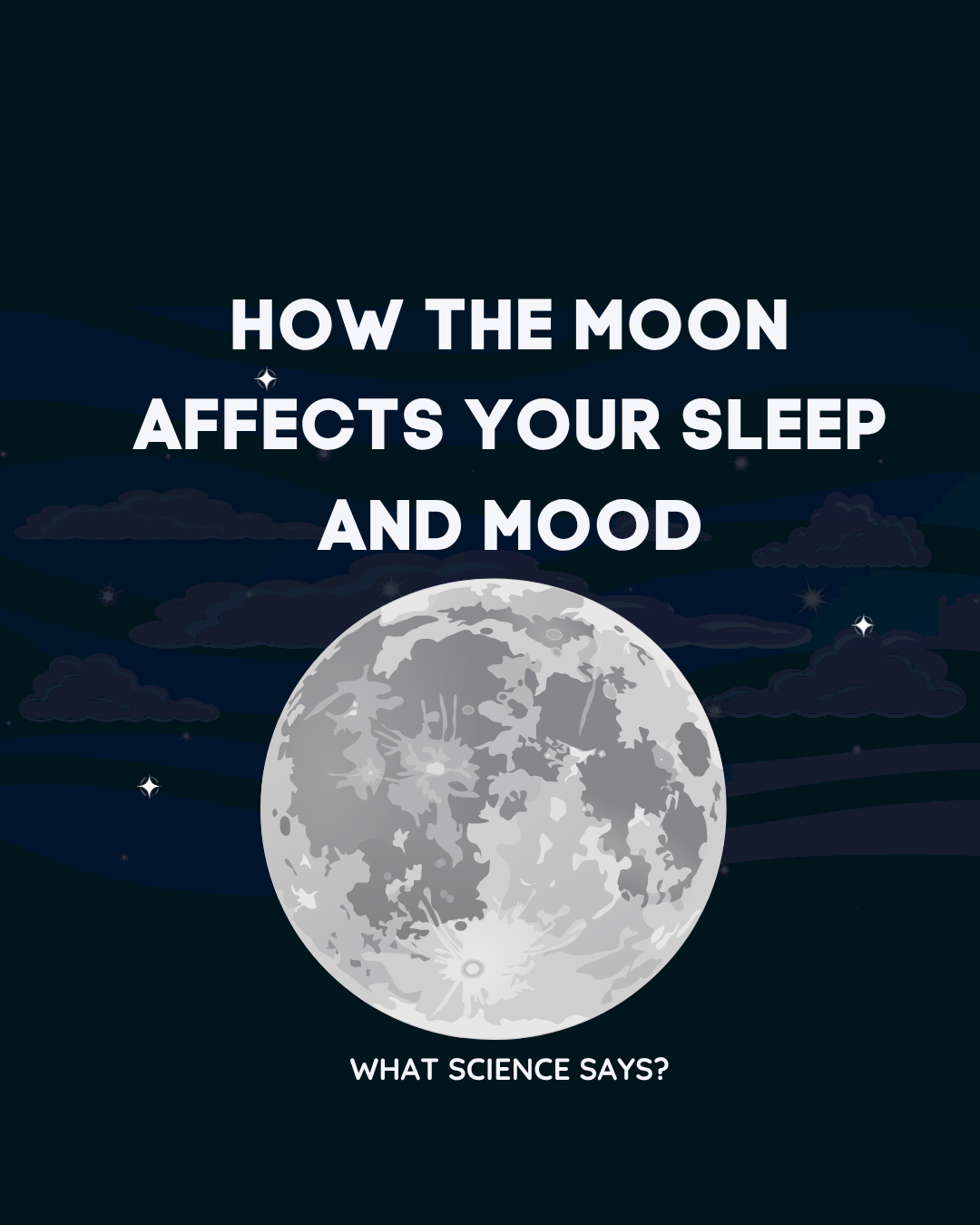
The moon has fascinated humans for thousands of years not just as a glowing orb in the night sky, but as a mysterious force, some believe influences our emotions, energy, and even sleep patterns. From ancient folklore to modern science, the idea that lunar phases affect how we feel and rest has sparked endless curiosity.
But is there truth behind the myth? Can the moon really change your mood or how well you sleep? In this article, we’ll dive into the science, explore cultural beliefs, and share tips for syncing your lifestyle with lunar rhythms to improve your wellbeing.
The Moon’s Phases: A Quick Refresher
The moon cycles through four main phases every 29.5 days:
1. New Moon: The moon is dark and invisible.
2. First Quarter: Half the moon is lit.
3. Full Moon: The entire face of the moon is visible and bright.
4. Last Quarter: Half the moon is visible again, but opposite side.
These phases affect the amount of moonlight and gravitational pull on Earth, which many cultures believe impact natural rhythms, including ours.
How Does the Moon Affect Sleep?
Many people report difficulty sleeping or feeling restless during a full moon. But what does science say?
Scientific Studies on Moon and Sleep
A 2013 study published in Current Biology, found participants had reduced deep sleep and took longer to fall asleep around the full moon, even when unaware of the moon phase.
However, other studies have had mixed results. Some show no significant effect, suggesting sleep quality is more influenced by factors like stress or environment.
Still, many researchers acknowledge that lunar light and gravitational changes may subtly impact human biology.
Why Might This Happen?
Moonlight: Before artificial lighting, bright full moons could disrupt melatonin production, the hormone regulating sleep.
Gravitational Pull: The moon’s gravity affects ocean tides. Some speculate it might influence human body fluids or circadian rhythms.
Psychological Expectations: The cultural significance of the full moon might cause heightened awareness or anxiety, disrupting rest.
The Moon and Your Mood
Mood swings, irritability, or bursts of energy are often linked to certain lunar phases.
Folklore and Modern Beliefs
Historically, many cultures believed the full moon caused “lunacy” or strange behavior.
The word “lunatic” comes from luna, Latin for moon.
Today, some still feel more emotional or creative during specific moon phases.
Scientific Perspectives
There is limited conclusive evidence linking moon phases directly to mood disorders.
However, circadian rhythm disruptions or sleep disturbances during full moons could indirectly affect mood.
Seasonal and environmental factors usually play a bigger role.
Synchronizing Your Life with Lunar Cycles
Whether or not you fully buy into the moon’s influence, many find value in aligning their routines with its rhythm.
Tips to Harness Lunar Energy for Better Sleep and Mood
1. New Moon: Time to rest, reflect, and set intentions.
2. Waxing Moon (growing): Focus on growth, productivity, and new projects.
3. Full Moon: Practice mindfulness, release stress, and prepare to let go.
4. Waning Moon (shrinking): Wind down, detox, and restore energy.
Practical Sleep Tips During Full Moon
- Use blackout curtains to block extra moonlight.
- Keep a consistent sleep schedule.
- Avoid caffeine or screens before bed.
- Practice calming rituals like reading or meditation.
The Science of Circadian Rhythms and the Moon
Our internal biological clock, or circadian rhythm, governs sleep, hormone production, and mood. It’s primarily influenced by sunlight, but the moonlight can play a smaller role, especially in nature or low-light conditions.
Modern lifestyles, with artificial lighting and screen time, often override these natural cues. Being mindful of lunar cycles could gently nudge your rhythm back into harmony.
The Moon in Different Cultures and Traditions
Across the world, the moon has deep spiritual and cultural significance related to mood and health:
Chinese medicine associates lunar phases with energy flows and organ health.
Native American tribes have moon names tied to nature’s cycles and community events.
Wiccan and Pagan practices celebrate the moon phases for magic and manifestation.
Exploring these traditions can add depth to how you perceive your mood and sleep patterns.
Final Thoughts: The Moon’s Influence is Real But Not Always Obvious
While science hasn’t nailed down exactly how much the moon affects your sleep and mood, the connection is worth exploring. Whether through biology, psychology, or cultural belief, the lunar cycle invites us to slow down and tune into natural rhythms something many of us desperately need in today’s fast paced world.
By observing the moon and adjusting your habits, you might find better rest and a calmer mind, even if the moon’s pull is subtle.
Want to Give It a Try?
Keep a sleep and mood journal synced with moon phases for a month or two. Notice any patterns. Use the moon as a guide to set goals, rest, and reflect.
Sometimes, just paying attention makes all the difference.
ruth
Waooo,I love this
coachblizz
Wow, what a wonderful post
hadizavive
Unbelievable,what an eye opener
mandy
I am happy to be enlightened
pristine
Good one 👏🏿
omotola
This is very educational, thank you so much 🙏🏽
lilian
Wow! What a great lesson. So Luna simply means moon...
beauty
Wow what a great post
tammie
So moon as connection with our sleep…love this nice write up
anniedynamite
Wow i have never heard of this before in my entire life Thank you so much Earnifix